As the world gathers in Brazil for COP30, the World Association of Girl Guides and Girl Scouts (WAGGGS) is asking this urgent question. The decisions made at COP30 will shape our planet’s future, yet the very people who will live that future, young people, are often left out of the decision-making spaces that matter most.
Research shows that youth are the most concerned generation when it comes to the climate crisis. A 2022 study on global and environmental change revealed that young people bring fresh ideas and a strong moral stance to climate dialogues. Excluding them means not only losing those ideas but also clinging to outdated methods to solve a problem that demands new thinking and bold action.
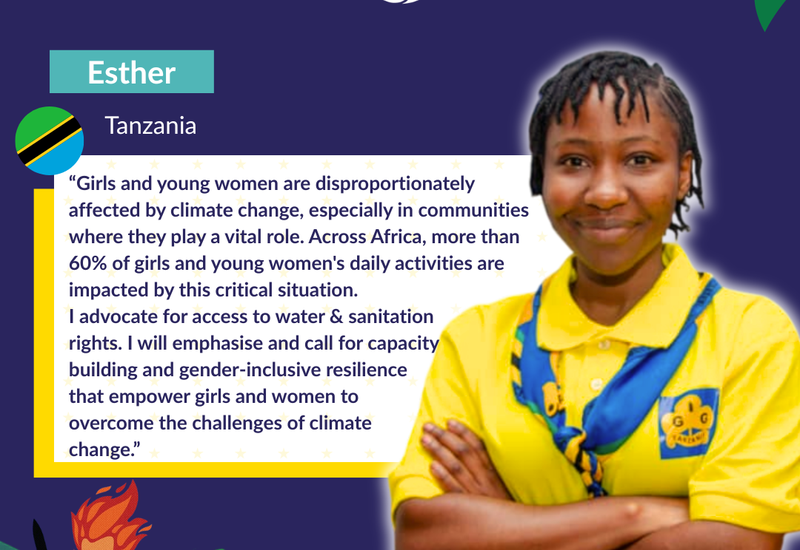
But climate change does not impact everyone equally. Around the world, girls and young women are bearing the heaviest burdens. As Esther, a youth delegate from Tanzania, reminds us, “Girls and young women are disproportionately affected by climate change, especially in communities where they play a vital role. Across Africa, more than 60% of girls’ and young women’s daily activities are impacted by this crisis.”
A 2022 paper supports this, showing that in countries like Zambia and Zimbabwe, girls lost access to education and took on heavier responsibilities at home during climate shocks, often walking long distances to fetch water or firewood.
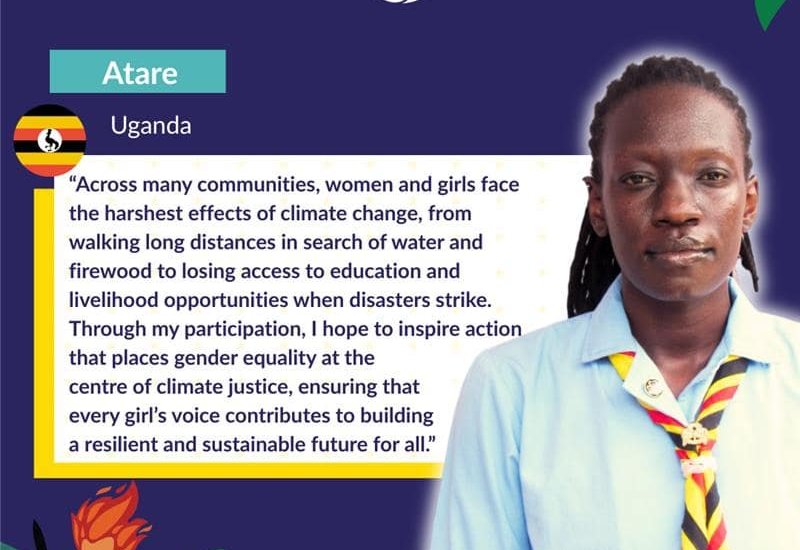
Atare from Uganda adds, “Girls face the harshest effects of climate change, from walking long distances in search of water and firewood to losing access to education and livelihood opportunities when disasters strike.” Yet these same girls, when equipped with proper education and leadership opportunities, are proving to be powerful changemakers.
Through Girl-Led Action on Climate Change (GLACC), WAGGGS’ climate education programme, thousands of girls and young women around the world are learning about climate change, its impacts on their lives, and how to take meaningful action. Across communities, they are leading water conservation projects, tree-planting drives, and sustainability workshops. They are also engaging with local governments through advocacy campaigns to drive policy change and promote gender-responsive climate action. Empowering women and girls in climate adaptation not only builds equity but also strengthens entire communities’ ability to manage resources and respond to environmental challenges.
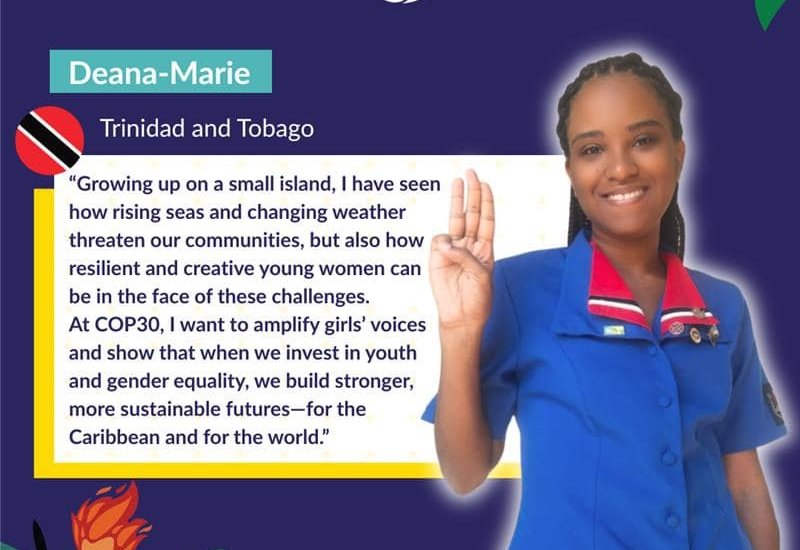
From the Caribbean to South America, the resilience and creativity of young women shine through. “Growing up on a small island,” shares Deana from Trinidad and Tobago, “I have seen how rising seas and changing weather threaten our communities—but also how resilient and creative young women can be in the face of these challenges.”
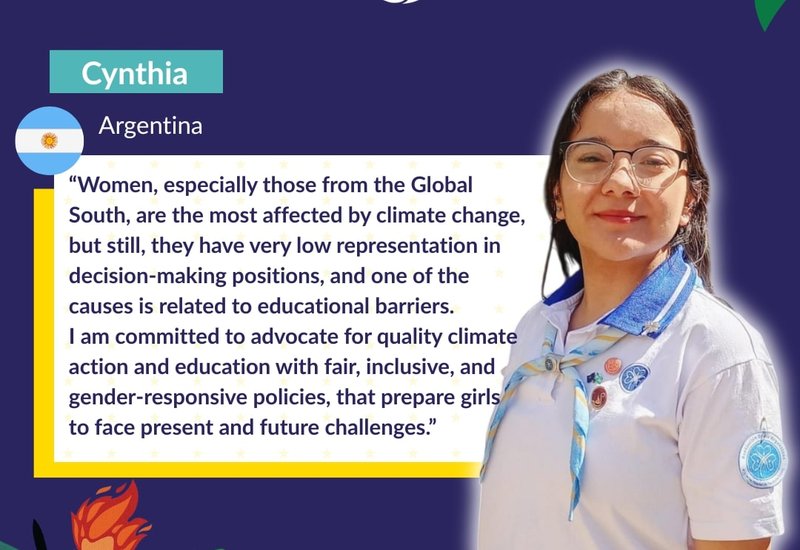
Yet, as Cynthia from Argentina points out, “Women, especially those of the Global South, are the most affected by climate change, but still, they have very low representation in decision-making positions, and one of the causes is related to educational barriers.”
Representing 11 million Girl Guides and Girl Scouts across 153 countries, WAGGGS believes that girls and young women must participate at all levels of climate decision-making and environmental programming. Moving beyond tokenism and “youth-washing” means investing in systems that genuinely empower girls to lead and not just to be present.
WAGGGS calls on leaders at COP30 to invest in resilient, gender-transformative climate justice education that equips girls and young women with the knowledge, skills, and civic awareness to drive meaningful change. Climate education must be both accessible and empowering, linking formal and non-formal learning with leadership development and community action.
WAGGGS is also advocating for greater economic empowerment of women and girls through funding for women entrepreneurs and income-generating initiatives that enhance financial resilience in the face of climate disruptions. Supporting women-led climate action means unlocking innovation, strengthening local economies, and ensuring that climate solutions are rooted in community realities.
Equally important is the capacity building for gender-inclusive resilience, through leadership training, disaster preparedness, and gender-responsive adaptation strategies. Girls and women must be recognised not as beneficiaries but as equal partners in shaping policy and action. Access to essential resources, such as land, water, sanitation, and financial support, remains another critical component of climate justice.
Finally, WAGGGS urges governments to integrate gender-responsive frameworks and policies in all climate adaptation, loss, and damage strategies. Gender equality must not be an afterthought but a central principle that informs every stage of planning, implementation, and evaluation.
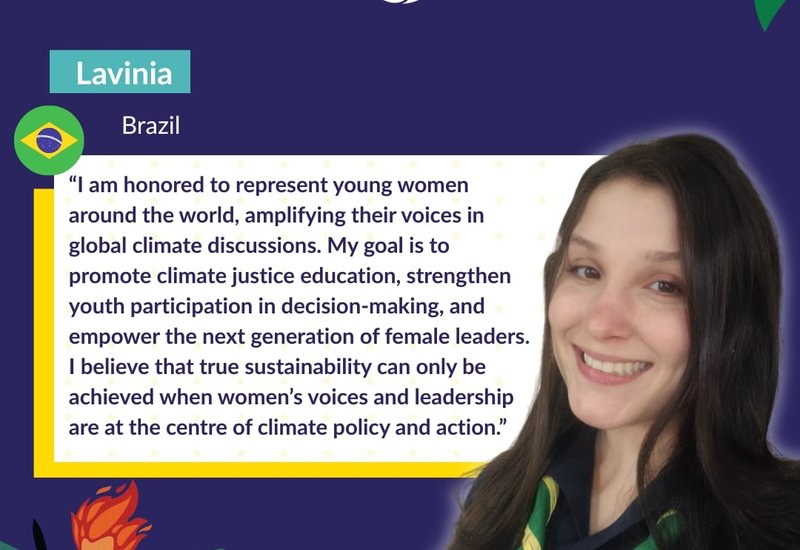
As Lavinia from Brazil emphasises, “I believe that true sustainability can only be achieved when women’s voices and leadership are at the center of climate policy and action.” Her words echo the collective spirit of this young delegation — a generation determined not only to protect the future but to shape it.
At COP30, WAGGGS and its young delegates are making a simple yet profound demand: don’t just talk about youth participation, make it real. Fund it. Embed it. Listen to it. Because when girls and young women lead, communities thrive, and climate solutions last.
Protecting the future begins by including those who are the future.
Read our key demands document here. (Arabic, Spanish, and French).
